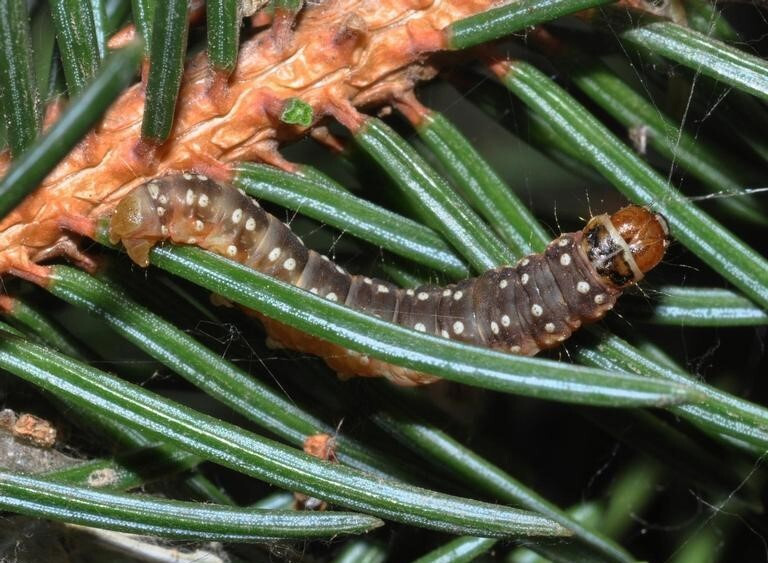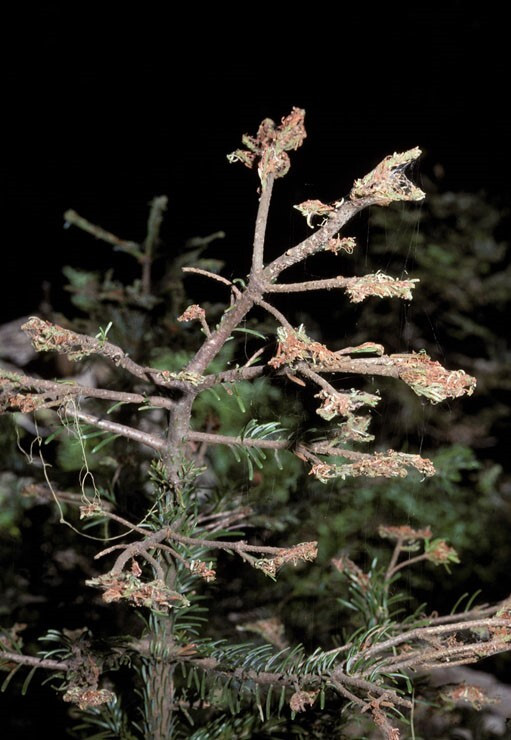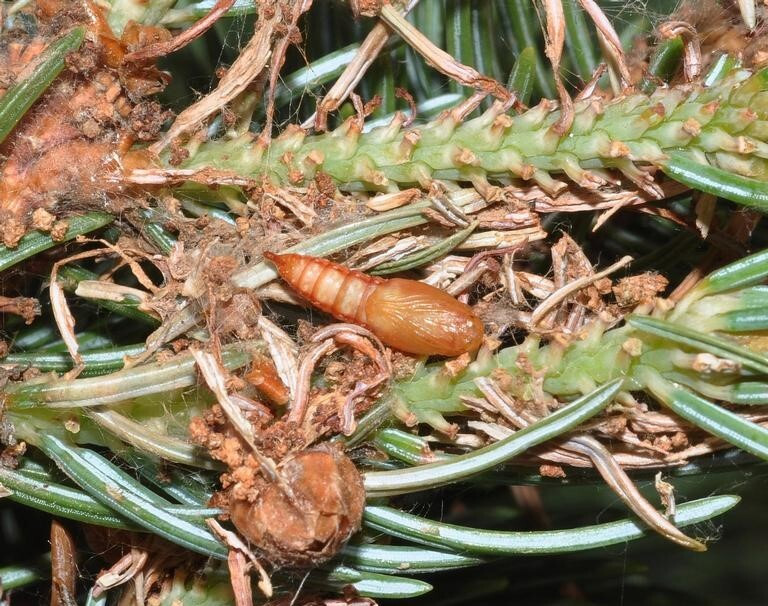Western Spruce Budworm (Choristoneura freemani)

Figure 1. Western spruce budworm caterpillar. Photo by W. Ciesla, FHMI Bugwood.

Figure 2. Damage from western spruce budworm. Photo by W. Ciesla, FHMI Bugwood. Larger image (127KB)
Hosts
Douglas-fir, fir, spruce, and larch trees
Damage and Symptoms
On the needles, insect excrement and webbing are present. The caterpillars can cause defoliation, deformation of the needles, and chewing damage.
Life Cycle
The caterpillars emerge in the spring and begin feeding. They pupate and reach adulthood in July. The females lay eggs, which hatch in about 10 days. In late July, young caterpillars create a cocoon-like structure to spend the rest of the season.
Management
Beneficial predators can help to control populations of the budworms. Monitoring for the caterpillars allows for properly timed chemical applications. Several contact insecticides are labeled for control of the pest and are most effective during the early stages of the caterpillar, including the bacterium Bacillus thuringiensis variety kurstaki.

Figure 3. Pupal stage of the western spruce budworm. Photo by W. Ciesla, FHMI Bugwood.
Further Information
To learn more about the topics discussed on this page, contact the Schutter Diagnostic Lab. If you suspect an infestation on your property, contact your local extension agent, the Schutter Diagnostic Lab at Montana State University, or the Montana Department of Agriculture.
This fact sheet is also available as a printable PDF (502KB).
Disclaimer: These recommendations are provided only as a guide. It is always the pesticide applicator’s responsibility, by law, to read and follow all current label directions for the specific pesticide being used. The authors and Montana State University assume no liability resulting from the use of these recommendations. The Montana State University Extension Service is an ADA/ EO/AA/Veteran’s Preference Employer and Provider of Educational Outreach.
